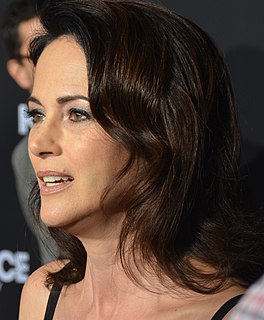A Quote by Maria Montessori
It is in the encounter of the maternal guiding instincts with the sensitive periods of the newly born that conscious love develops between parent and child.
Related Quotes
A conscious parent is not one who seeks to fix her child or seek to produce or create the 'perfect' child. This is not about perfection. The conscious parent understands that is journey has been undertaken, this child has been called forth to 'raise the parent' itself. To show the parent where the parent has yet to grow. This is why we call our children into our lives.
Compared to other parents, remarried parents seem more desirous of their child's approval, more alert to the child's emotional state, and more sensitive in their parent-child relations. Perhaps this is the result of heightened empathy for the child's suffering, perhaps it is a guilt reaction; in either case, it gives the child a potent weapon--the power to disrupt the new household and come between parent and the new spouse.
The child is born with a Self but not with an ego. The child develops the ego. As he becomes more and more social and related, ego develops. This ego is just on your periphery where you are related with others - just on the boundary of your being. So ego is the periphery of your being, and Self is the center. The child is born with a Self, but unaware. He is a Self, but he is not conscious of the Self.
The traditional paradigm of parenting has been very hierarchical, the parent knows best and very top down. Conscious parenting topples [this paradigm] on its head and creates this mutuality, this circularity where both parent and child serve each other and where in fact, perhaps, the child could be even more of a guru for the parent .... teaching the parent how the parent needs to grow, teaching the parent how to enter the present moment like only children know how to do.
Conscious parenting is a new paradign shift in the way we look at our roles as parents. It's turning the spot light away from fixing the child and managing the child, obsession with all things that have to do with the child and the child centric approach and really focusing on the evolution of the parent. It about fully understanding that unless the parent has raised themselves to a certain level of emotional integration and maturity, they will really not be able to do true service to the child's spirit.
Prayer has been hedged about with too many man-made rules. I am convinced that God has intended prayer to be as simple and natural, and as constant a part of our spiritual life, as the intercourse between child and parent in the home. And as a large part of that intercourse between child and parent is simply asking and receiving, just so is it with us and our Heavenly Parent.
The parent who loves his child dearly but asks for nothing in return might qualify as a saint, but he will not qualify as a parent. For a child who can claim love without meeting any of the obligations of love will be a self-centered child and many such children have grown up in our time to become petulant lovers and sullen marriage partners because the promise of unconditional love has not been fulfilled.
































